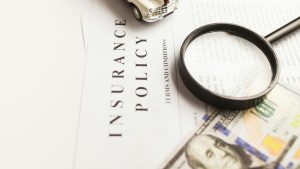Your car insurance renewal is coming up soon, and it’s easy to just let it auto-renew. But honestly, that’s usually not the best move. You might be missing out on better deals or coverage that actually fits your needs now. This article is all about making sure you get the most out of your car insurance renewal without any hassle.
Key Takeaways
- Don’t just auto-renew your car insurance; compare at least three quotes to potentially save money.
- Understand what factors influence your premium, like your driving history and car details.
- Consider adjusting your policy excess to see if it lowers your premium.
- Review your coverage needs annually to ensure you’re not over or under-insured.
- Look into options like usage-based insurance if your driving habits have changed.
Understanding Your Car Insurance Renewal
Renewing your car insurance is more than just a formality; it’s a chance to make sure you’re properly covered and not overpaying. Many drivers simply let their policies auto-renew without a second thought, which can mean missing out on better deals or coverage options. It’s important to remember that your circumstances and the market can change year to year.
The Importance of Timely Renewal
Letting your car insurance lapse, even for a short period, can have serious consequences. Driving without valid insurance is illegal and can lead to hefty fines and penalties. Beyond legal issues, if you have an accident while uninsured, you’ll be personally responsible for all damages and medical costs, which can be financially devastating. Renewing on time ensures continuous protection for you and your vehicle, giving you peace of mind on the road. It’s a crucial step to maintain compliance and optimize your policy [58e1].
Factors Influencing Your Premium
Several elements contribute to how your car insurance premium is calculated. Insurers assess risk based on a variety of factors, and these can change over time. Some common factors include:
- Your driving record: Accidents, claims, and traffic violations can increase your premium.
- Your vehicle: The make, model, age, and safety features of your car play a role.
- Your age and experience: Younger, less experienced drivers often pay more.
- Your location: Where you live can affect rates due to local accident statistics and theft rates.
- Your coverage choices: The type and amount of coverage you select directly impact the cost.
- Your claims history: A history of claims can lead to higher premiums.
Insurers measure risk differently, so it’s worth shopping around. Don’t be surprised if you get quoted a high premium; it might just be due to statistics associated with your car or profile, regardless of your driving habits.
What to Expect During Renewal
When your renewal date approaches, your insurer will typically send you a renewal notice. This notice will outline your current coverage and the proposed premium for the next term. It’s a good time to review this information carefully. You’ll want to check if your coverage levels are still appropriate for your needs. For example, has your car’s value changed significantly? Do you need to adjust your coverage based on new driving habits? Having your driver’s license number and date of birth ready will help expedite the process. Knowing the make and model of your vehicle is also beneficial [6989].
It’s also a good opportunity to consider any changes you might want to make to your policy, such as adjusting your excess or adding optional coverages. Don’t just accept the renewal offer without comparing it to other options. Many drivers find they can save money by comparing quotes from different providers. Over a third of drivers may miss out on potential savings simply by auto-renewing with their current provider [2].
Strategies for a Better Car Insurance Renewal
When your car insurance is up for renewal, it’s easy to just click ‘renew’ and move on. But honestly, that’s often how people end up paying more than they need to.
Avoid Automatic Renewals
Many drivers just let their policies auto-renew. This might seem convenient, but it’s a missed opportunity. Insurers don’t always offer you their best rates when you auto-renew. You could be missing out on better deals or discounts that are available to new customers. Don’t be afraid to break the cycle and actively look for a new policy. It’s worth checking out what other companies are offering.
Compare Multiple Quotes
This is probably the most effective way to save money. Instead of sticking with your current provider, take some time to compare quotes from at least three different insurance companies. You might be surprised at the difference in premiums for similar coverage. For example, some customers can save hundreds of dollars annually just by comparing quotes before their renewal date. You can use online comparison tools to make this process quicker.
Consider Increasing Your Policy Excess
Your policy excess is the amount you pay out-of-pocket before your insurance kicks in for a claim. If you’re a low-risk driver and don’t anticipate making claims, you could consider increasing your excess. This usually leads to a lower premium. Just make sure you’re comfortable with the higher out-of-pocket cost if you do need to make a claim. It’s a trade-off between a lower regular payment and a higher potential cost in case of an accident.
It’s important to remember that insurance is a contract. You’re paying for protection, and it’s your right to ensure you’re getting the best value for your money. Taking a proactive approach to your renewal can lead to significant savings and better coverage tailored to your current needs.
Optimizing Your Coverage and Costs
When it comes to car insurance, it’s not just about finding the cheapest option. It’s about making sure you have the right amount of protection for your needs without overpaying. Think of it like this: you wouldn’t buy a massive truck if you only ever drive to the grocery store, right? The same logic applies to your car insurance.
Choosing the Right Coverage Level
Your car insurance policy is built around different types of coverage. The most common ones are Third Party Only (TPO) and Comprehensive. TPO covers damage or injury to others, but not your own car. Comprehensive covers damage to your car as well, even if it’s your fault, plus other things like theft or fire. Deciding between these depends heavily on your car’s age, value, and how much you drive. For an older car that’s not worth much, TPO might be enough. But for a newer or more valuable car, comprehensive coverage is usually the way to go.
Understanding Workshop Choices
When you have a comprehensive policy, you’ll often have a choice of where your car gets repaired after an accident. Insurers usually have a list of ‘approved’ or ‘panel’ workshops. Going to one of these often means the insurer handles the billing directly, and you might not have to pay upfront. However, if you prefer the flexibility to choose any workshop you like, even one not on their list, you’ll likely pay a higher premium. This is because the insurer can’t control the costs at an unlisted workshop as easily. For older cars, choosing an ‘authorised workshop’ from the insurer’s list can often lead to lower premiums, just be sure the listed workshops are conveniently located for you.
Exploring Usage-Based Insurance Options
Usage-Based Insurance (UBI), sometimes called pay-as-you-drive, is a newer option that’s gaining traction. The idea is simple: if you drive less, you pay less. This type of insurance is great if you don’t use your car very often, maybe just for occasional errands or weekend trips, and rely on other transport for your daily commute. Some UBI plans offer cash rebates based on how little you drive, while others might use a device or app to track your mileage. It’s a way to tailor your premium more closely to your actual driving habits. You can explore options like these to potentially reduce your insurance expenses by taking advantage of available discounts and savings.
Regularly reviewing your insurance coverage is important. Life changes, and your insurance needs should change with it. Making sure your policy aligns with your current situation can help you get the best protection without paying for coverage you don’t really need.
Key Considerations for Your Next Policy
When it’s time to renew your car insurance, it’s not just about picking up where you left off. You should really think about what you need now versus what you needed last year. Life changes, and so do your driving habits and financial situation. Making sure your policy still fits is important.
No-Claim Discount Protection
Your No-Claim Discount (NCD) is a reward for being a claim-free driver. It can significantly lower your premium. Some policies offer NCD protection, which means you can make a claim or two without losing your accumulated discount. This can be a lifesaver if you have a minor fender bender. It’s worth checking if your current insurer offers this, or if you can get it with a new policy. Protecting your NCD can lead to substantial savings over time.
Engine and Gearbox Warranties
Standard car insurance typically covers damage from accidents, theft, or fire. However, it usually doesn’t cover mechanical breakdowns. Some comprehensive policies might offer optional add-ons for engine and gearbox protection. These can be beneficial, especially for newer cars or if you’re concerned about unexpected repair bills for these major components. Think about the age and reliability of your car when considering this.
Payout for Damage Beyond Repair
What happens if your car is declared a total loss? This means the cost to repair it is more than its market value. Your policy should clearly state how the payout is calculated. Some policies offer an ‘Agreed Value’ which is a fixed amount you and the insurer agree on beforehand. Others use ‘Market Value’, which can be lower and might not be enough to buy a comparable replacement car. Understanding this difference is key to avoiding disappointment if the worst happens. You can find out more about renewing your car insurance online here.
Here are a few things to keep in mind:
- Agreed Value vs. Market Value: Know which method your insurer uses for total loss payouts.
- Depreciation: Some policies account for depreciation on car parts, which can reduce the payout.
- Optional Add-ons: Look for features like a new car replacement benefit if your car is totaled within its first few years.
Navigating the Renewal Process
How to Get the Cheapest Car Insurance Rate
Finding the most affordable car insurance doesn’t have to be a guessing game. Many drivers simply accept their renewal offer without looking around, which can mean overpaying. Don’t auto-renew without comparing. It’s a common mistake that costs people money. Insurers often offer better deals to new customers, so it’s always worth checking what else is out there. You might be surprised at how much you can save just by taking a little time to compare quotes from different companies. This is a great way to ensure you’re getting good value for your money.
Steps to Compare Car Insurance
Comparing car insurance policies is straightforward if you break it down into a few key steps. This process helps you understand your options and find a policy that fits your needs and budget.
- Gather Your Information: Have your current policy details, driving history, and vehicle information ready. This includes things like your car’s make, model, year, and any safety features.
- Get Multiple Quotes: Reach out to several insurance providers or use an online comparison tool. Aim to get at least three quotes to get a good sense of the market rates.
- Review Coverage Details: Don’t just look at the price. Make sure each quote offers the coverage you need. Check things like the deductible amount, liability limits, and any optional add-ons.
- Check for Discounts: Ask about potential discounts. Many insurers offer savings for things like good driving records, low mileage, or bundling multiple policies.
Remember, the cheapest option isn’t always the best. It’s important to balance cost with adequate coverage to ensure you’re properly protected on the road.
Making the Purchase Decision
Once you’ve compared quotes, the next step is deciding which policy to choose. Consider the following:
- Coverage Level: Does the policy provide enough protection for your needs? Think about potential risks and what you’d want covered in an accident.
- Price vs. Value: Is the premium affordable, and does it offer good value for the coverage provided? Sometimes paying a little more for better coverage or a more reputable insurer is worthwhile.
- Customer Service: Look into the insurer’s reputation for customer service and claims handling. Reading reviews can give you an idea of what to expect if you ever need to make a claim. You can find more details on renewing your car insurance.
- Payment Options: Check how you can pay your premiums. Options like credit cards, GIRO, or AXS are common, and it’s good to choose a method that works for you. Your insurer will typically notify you about the renewal process via email or mail.
Maximizing Savings on Your Car Insurance Renewal
It’s easy to just let your car insurance renew automatically, but that often means you’re not getting the best deal. Many drivers miss out on potential savings simply by sticking with their current provider year after year. Don’t be one of them.
Potential Savings Through Comparison
Think of your car insurance like any other service – prices and offerings change. Insurers compete for your business, and what was the best rate last year might not be the best rate today. By taking a little time to compare quotes from different companies, you can often find similar coverage for less money. Some people save hundreds of dollars annually just by shopping around. It’s a straightforward way to keep more cash in your pocket.
How Premiums Are Determined
Your car insurance premium isn’t just a random number. Insurers look at a variety of factors to assess risk. These typically include:
- Your driving record: Accidents or tickets can increase your rates.
- Your car: The make, model, age, and safety features of your vehicle play a role.
- Your location: Where you live and park your car can affect risk.
- Your age and driving experience: Younger, less experienced drivers often pay more.
- Your claims history: Previous claims can indicate higher risk.
- Your chosen coverage and excess: Higher coverage limits and lower excess amounts usually mean higher premiums.
Understanding these factors can help you see why your premium is what it is, and where you might have some flexibility.
Tips to Lower Your Car Insurance Premiums
There are several practical steps you can take to reduce your car insurance costs:
- Avoid Auto-Renewals: As mentioned, always compare quotes before your policy renews. Don’t feel obligated to stick with your current insurer.
- Increase Your Policy Excess: Opting for a higher excess (the amount you pay before the insurance kicks in) can lower your monthly premium. Just be sure you can afford the higher excess if you need to make a claim. For example, increasing your deductible could save you between $464 and $525 annually [0c8f].
- Bundle Policies: If you have other insurance needs, like home insurance, see if you can get a discount by bundling them with your car insurance provider.
- Consider Usage-Based Insurance (UBI): If you don’t drive much, UBI programs track your driving habits and can offer lower premiums for safe, low-mileage drivers.
- Install Anti-Theft Devices: Some insurers offer discounts if your car has certain security features installed.
Regularly reviewing your insurance policies and actively seeking out better deals is key to managing your car insurance costs effectively. It’s not just about finding the cheapest option, but the best value for your specific needs.
Want to save more on your car insurance when it’s time to renew? It’s easier than you think! We’ve got simple tips to help you find the best deals. Check out our website for easy ways to lower your rates and keep more money in your pocket.
Don’t Let Your Coverage Lapse
So, your car insurance renewal is coming up. It might seem like a hassle, but it’s really important to get it sorted out on time. Don’t just let it auto-renew without checking if you can get a better deal. Lots of people end up paying more than they need to because they don’t compare prices. Take a few minutes to look at different options; you might be surprised how much you can save. Keeping your car insured is key to driving with peace of mind, so make sure you handle this before your current policy runs out.
Frequently Asked Questions
Why shouldn’t I just let my car insurance renew automatically?
Many drivers miss out on better deals by letting their insurance renew without checking other options. Insurance companies might not offer you their best prices every year. It’s smart to compare quotes from different companies to make sure you’re getting a good price and the coverage you need.
How can comparing quotes help me save money?
By looking at offers from several insurance providers, you can find out who has the cheapest price for the coverage you want. Some studies show people can save hundreds of dollars a year just by comparing. Different companies focus on different benefits, so comparing helps you find the best fit for your needs and budget.
What does it mean to increase my policy excess?
Your policy excess is the amount you pay out-of-pocket before your insurance kicks in for a claim. If you choose a higher excess, your monthly or yearly premium will usually be lower. It’s like a trade-off: you pay a bit more yourself if something happens, but you pay less regularly.
What factors influence my car insurance premium?
Insurance companies look at many things to decide your premium. This includes your age, how often you drive, the type of car you have, your driving history, and even where you live. They use these details to guess how likely you are to make a claim.
What is Usage-Based Insurance (UBI)?
Usage-Based Insurance means your premium is based on how much and how you drive. If you don’t drive much, perhaps only for weekend errands, UBI could save you money. Some UBI plans track your driving distance or habits to offer discounts.
What should I do if my car is damaged beyond repair?
Most car insurance policies will pay out the car’s current market value if it’s totally wrecked and can’t be fixed. This usually applies for the first year of the policy and typically doesn’t include the cost of your Certificate of Entitlement (COE).







